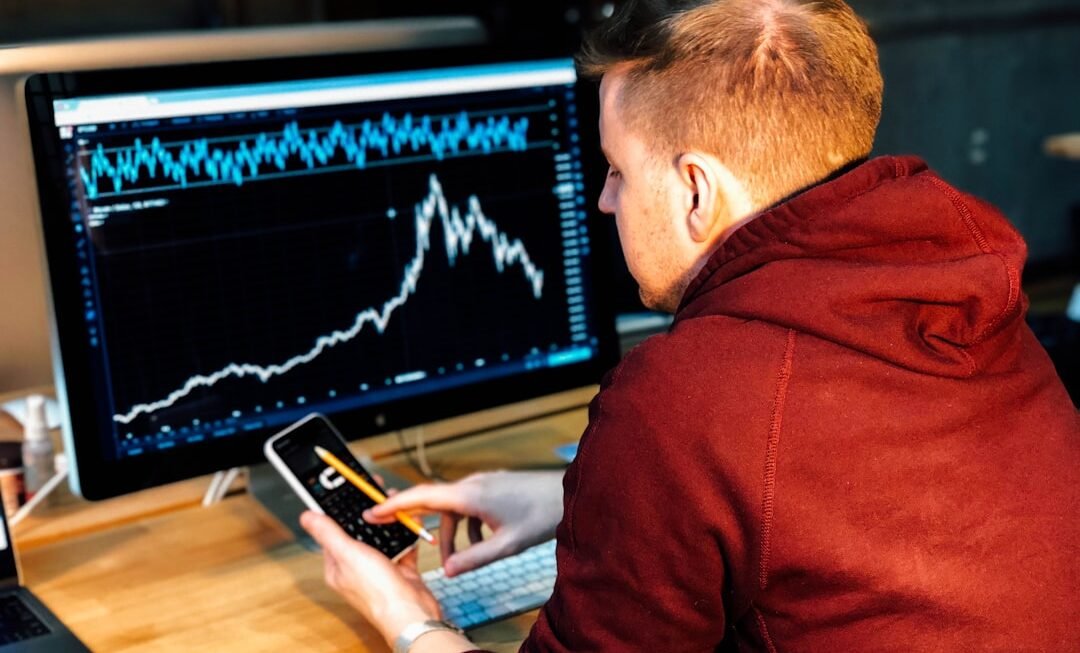Artificial Intelligence (AI) trading apps have revolutionized the landscape of financial markets, providing traders with sophisticated tools that leverage machine learning algorithms to analyze vast amounts of data. These applications are designed to assist both novice and experienced traders in making informed decisions by predicting market trends, optimizing trading strategies, and automating trades. The core functionality of AI trading apps lies in their ability to process and interpret data at speeds and accuracies that far exceed human capabilities.
By utilizing historical data, real-time market information, and advanced statistical models, these apps can identify patterns and correlations that may not be immediately apparent to human traders. The rise of AI trading apps can be attributed to the increasing complexity of financial markets and the sheer volume of data generated daily. Traditional trading methods often struggle to keep pace with the rapid changes in market conditions, making it challenging for traders to capitalize on fleeting opportunities.
AI trading apps address this issue by employing algorithms that continuously learn and adapt to new information, thereby enhancing their predictive accuracy over time. This dynamic approach not only improves the efficiency of trading strategies but also reduces the emotional biases that can cloud human judgment, leading to more rational decision-making processes.
Key Features to Look for in AI Trading Apps
When selecting an AI trading app, several key features should be considered to ensure that it meets the specific needs of the trader. One of the most critical features is the app’s algorithmic capabilities. A robust algorithm should be able to analyze historical data, recognize patterns, and generate actionable insights based on real-time market conditions.
Traders should look for apps that offer customizable algorithms, allowing them to tailor the app’s functionality to their unique trading strategies and risk tolerance. Another essential feature is the user interface and experience. A well-designed app should provide an intuitive interface that allows users to navigate easily through various functionalities, such as charting tools, trade execution options, and performance analytics.
Additionally, the app should offer comprehensive educational resources, including tutorials and market analysis, to help users understand how to leverage AI effectively in their trading endeavors. Furthermore, integration with other financial tools and platforms can enhance the overall trading experience by providing a seamless workflow for managing investments.
Best AI Trading Apps for Beginners
For novice traders venturing into the world of AI trading, several apps stand out due to their user-friendly interfaces and educational resources. One such app is eToro, which combines social trading features with AI-driven insights. eToro allows beginners to follow and copy the trades of experienced investors while also providing access to a wealth of educational materials.
The platform’s AI algorithms analyze market trends and suggest potential trades based on user preferences and risk profiles. Another excellent option for beginners is Trade Ideas, which offers a powerful AI engine known as Holly. Holly generates trade ideas based on a multitude of strategies and backtests them against historical data to identify the most promising opportunities.
The platform is designed with an emphasis on education, providing users with webinars and tutorials that help demystify the complexities of trading. Additionally, its paper trading feature allows beginners to practice their skills without risking real capital, making it an ideal choice for those just starting their trading journey.
Best AI Trading Apps for Professionals
Professional traders often require more advanced features and capabilities from their AI trading apps. One standout option is MetaTrader 5 (MT5), which offers a comprehensive suite of tools for algorithmic trading. MT5 allows users to create custom indicators and automated trading strategies using its MQL5 programming language.
The platform’s advanced charting capabilities and extensive market analysis tools make it a favorite among seasoned traders looking to leverage AI for high-frequency trading or complex strategies. Another noteworthy app for professionals is QuantConnect, which provides a cloud-based algorithmic trading platform that supports multiple asset classes. QuantConnect allows users to design, backtest, and deploy their trading algorithms using a wide range of programming languages, including C# and Python.
The platform’s extensive library of historical data enables traders to refine their strategies based on empirical evidence, while its community-driven approach fosters collaboration among developers and traders alike.
How to Evaluate the Performance of AI Trading Apps
Evaluating the performance of AI trading apps requires a multifaceted approach that considers various metrics and factors. One primary metric is the app’s historical performance, which can be assessed by analyzing its return on investment (ROI) over different time frames. Traders should look for transparency in performance reporting, including detailed breakdowns of winning versus losing trades, drawdown periods, and overall volatility.
In addition to historical performance, traders should also consider the app’s adaptability to changing market conditions. An effective AI trading app should demonstrate resilience during periods of market turbulence or unexpected events. This can be evaluated through stress testing, where the app’s algorithms are subjected to simulated market scenarios to assess their robustness.
Furthermore, user reviews and testimonials can provide valuable insights into the app’s reliability and effectiveness from the perspective of actual users.
Risks and Considerations When Using AI Trading Apps
While AI trading apps offer numerous advantages, they are not without risks and considerations that traders must be aware of before diving in. One significant risk is over-reliance on technology; traders may become complacent and fail to conduct their own research or due diligence when using these tools. This can lead to poor decision-making if the app’s algorithms produce suboptimal results or if market conditions shift unexpectedly.
Another consideration is the potential for algorithmic bias. AI systems are only as good as the data they are trained on; if historical data contains biases or inaccuracies, these can be perpetuated in the app’s predictions. Traders should remain vigilant about understanding how an app’s algorithms function and be prepared to adjust their strategies accordingly.
Additionally, regulatory changes in financial markets can impact the effectiveness of certain algorithms, making it essential for traders to stay informed about industry developments.
Customization and Personalization Options in AI Trading Apps
Customization and personalization are vital aspects of AI trading apps that enhance user experience and effectiveness. Many platforms allow users to tailor their trading strategies by adjusting parameters such as risk tolerance, investment goals, and preferred asset classes. This level of customization enables traders to align the app’s functionality with their individual preferences and market outlooks.
Moreover, some advanced AI trading apps offer machine learning capabilities that adapt over time based on user behavior and feedback. For instance, an app may learn from a trader’s past decisions—such as which types of trades they prefer or how they react during market volatility—and adjust its recommendations accordingly. This personalized approach not only improves user satisfaction but also increases the likelihood of successful trades by aligning the app’s insights with the trader’s unique style.
Integrating AI Trading Apps with Traditional Trading Platforms
The integration of AI trading apps with traditional trading platforms is becoming increasingly important as traders seek seamless workflows that combine advanced technology with established practices. Many modern AI trading applications offer APIs (Application Programming Interfaces) that allow them to connect with popular brokerage platforms like Interactive Brokers or TD Ameritrade. This integration enables traders to execute trades directly from the AI app while benefiting from the robust features of traditional platforms.
Additionally, integrating AI tools with traditional platforms can enhance data analysis capabilities. For example, traders can use an AI app to analyze market trends while simultaneously accessing real-time data from their brokerage accounts. This synergy allows for more informed decision-making by combining quantitative insights from AI with qualitative assessments derived from traditional analysis methods.
Security and Privacy Considerations for AI Trading Apps
As with any digital financial tool, security and privacy are paramount when using AI trading apps. Traders must ensure that the applications they choose employ robust security measures such as encryption protocols, two-factor authentication (2FA), and secure data storage practices. These features help protect sensitive information from unauthorized access or cyber threats.
Moreover, privacy considerations extend beyond just security measures; users should be aware of how their data is collected, stored, and utilized by the app developers. Transparency regarding data usage policies is crucial for building trust between users and developers. Traders should carefully review privacy policies before committing to any platform to ensure that their personal information is handled responsibly.
Tips for Maximizing the Benefits of AI Trading Apps
To fully leverage the potential of AI trading apps, traders should adopt a proactive approach that includes continuous learning and adaptation. Engaging with educational resources provided by the app can enhance understanding of both market dynamics and algorithmic strategies. Additionally, participating in community forums or discussions can provide valuable insights from other users who share similar experiences.
Setting realistic expectations is also essential when using AI trading apps. While these tools can significantly enhance decision-making processes, they are not infallible; losses are still possible even with advanced algorithms at play. Traders should maintain a disciplined approach by implementing risk management strategies such as setting stop-loss orders or diversifying their portfolios across different asset classes.
Future Trends in AI Trading Apps
The future of AI trading apps is poised for significant advancements as technology continues to evolve at a rapid pace. One emerging trend is the integration of natural language processing (NLP) capabilities into these applications. NLP allows AI systems to analyze news articles, social media sentiment, and other textual data sources in real-time, providing traders with insights into market sentiment that may influence price movements.
Additionally, advancements in quantum computing hold promise for revolutionizing algorithmic trading by enabling faster processing speeds and more complex calculations than currently possible with classical computers. This could lead to more sophisticated predictive models that enhance trading accuracy even further. As regulatory frameworks evolve alongside technological advancements, we may also see increased collaboration between traditional financial institutions and fintech companies focused on developing innovative AI solutions tailored for diverse trading needs.
In conclusion, as artificial intelligence continues to reshape the financial landscape through innovative applications in trading technology, both novice and professional traders stand to benefit immensely from these advancements—provided they remain informed about best practices while navigating this dynamic environment.
FAQs
What are AI trading apps?
AI trading apps are applications that use artificial intelligence and machine learning algorithms to analyze market data, make trading decisions, and execute trades on behalf of users. These apps are designed to automate the trading process and provide users with insights and recommendations for their investment strategies.
What are the benefits of using AI trading apps?
Some of the benefits of using AI trading apps include the ability to analyze large volumes of data quickly, make data-driven trading decisions, automate trading processes, and potentially reduce human error in trading. These apps can also provide users with insights and recommendations based on historical market data and real-time market conditions.
What should beginners look for in AI trading apps?
Beginners should look for AI trading apps that offer user-friendly interfaces, educational resources, and demo accounts for practice trading. It’s also important for beginners to choose apps that provide clear explanations of their AI algorithms and trading strategies, as well as risk management features to help protect their investments.
What should professionals look for in AI trading apps?
Professionals should look for AI trading apps that offer advanced analytics, customizable trading strategies, and access to a wide range of financial instruments and markets. They should also consider apps that provide real-time market data, advanced charting tools, and the ability to integrate with other trading platforms and tools.
What are some popular AI trading apps for beginners and professionals?
Some popular AI trading apps for beginners and professionals include Robinhood, eToro, AlgoTrader, and MetaTrader. These apps offer a range of features and capabilities to suit different trading styles and experience levels. It’s important for users to research and compare different apps to find the best fit for their individual needs and preferences.












